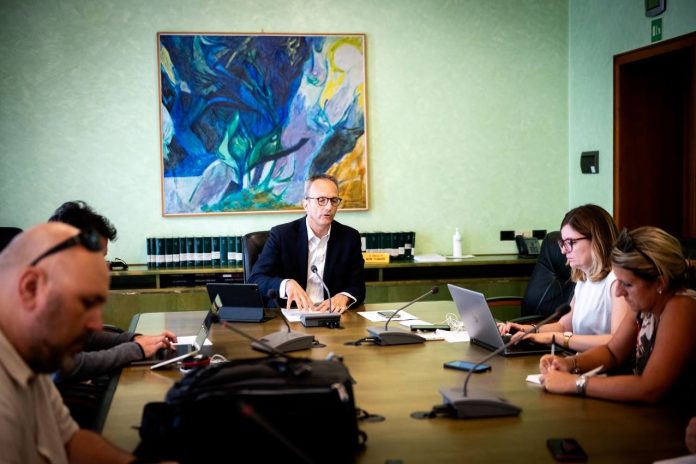by InTrieste
The ambitious cable car project intended to connect Trieste with the nearby town of Opicina has come under intense scrutiny following new revelations about escalating costs and regulatory challenges. Regional Councilor Francesco Russo has publicly criticized the project, urging the local administration to abandon what he describes as a “crazy” initiative.
In a recent press conference, Russo highlighted a document from Terna S.p.A., the national operator of high and very high voltage networks, which reveals that the Municipality of Trieste is now obligated to spend approximately 1.5 million euros to relocate high-voltage lines incompatible with the cable car. This new requirement not only inflates the project’s costs but also delays its timeline.
“The cable car cannot be built; the facts are clear,” Russo stated. “It’s time for the Dipiazza administration to admit that this project is unfeasible and to stop wasting public money that could be better spent elsewhere.”
The document, dated March 14, 2024, was reportedly kept confidential by the Municipality of Trieste until it was disclosed through a formal request for public records. Russo criticized the administration for its lack of transparency and for continuing to push forward with a project that he argues is both financially impractical and logistically problematic.
The cable car was initially slated for completion by 2025. Russo questioned the feasibility of meeting this deadline, given the new financial and regulatory hurdles. He also pointed out the additional complications posed by the cable car’s planned route, which intersects major traffic routes and railway lines. Russo warned that further expenses could be necessary, potentially diverting funds from critical services such as social support and infrastructure improvements.
“Throwing away another 1.5 million euros, following the funds already wasted on Fuksas, would be a grave mistake,” Russo concluded, emphasizing the need for a reevaluation of the project’s viability.
The debate over the cable car project underscores broader concerns about fiscal responsibility and project management in local governance. As Trieste grapples with these challenges, the future of the cable car remains uncertain, and its critics call for a reallocation of resources to more pressing community needs.






























